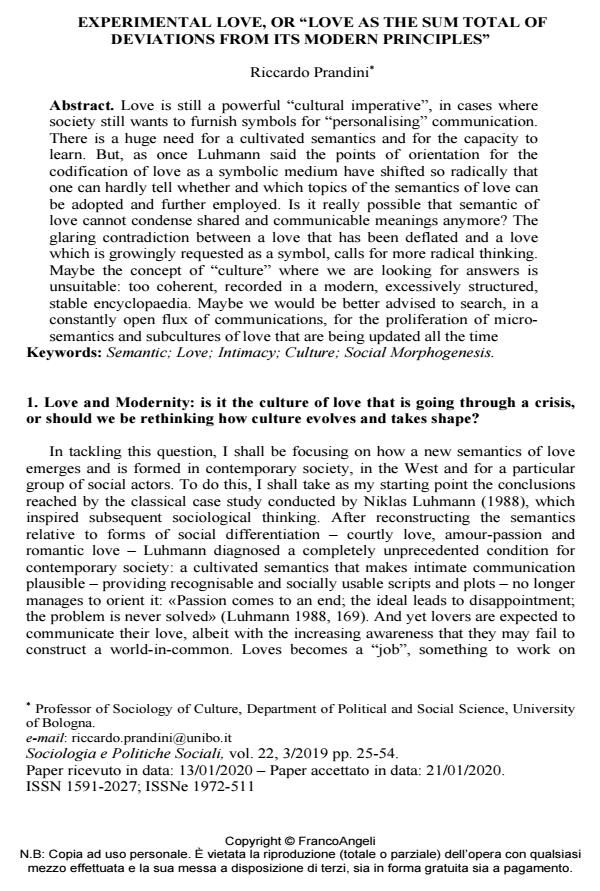Experimental love, or "love as the sum total of deviations from its modern principles"
Titolo Rivista SOCIOLOGIA E POLITICHE SOCIALI
Autori/Curatori Riccardo Prandini
Anno di pubblicazione 2020 Fascicolo 2019/3
Lingua Inglese Numero pagine 30 P. 25-54 Dimensione file 321 KB
DOI 10.3280/SP2019-003002
Il DOI è il codice a barre della proprietà intellettuale: per saperne di più
clicca qui
Qui sotto puoi vedere in anteprima la prima pagina di questo articolo.
Se questo articolo ti interessa, lo puoi acquistare (e scaricare in formato pdf) seguendo le facili indicazioni per acquistare il download credit. Acquista Download Credits per scaricare questo Articolo in formato PDF

FrancoAngeli è membro della Publishers International Linking Association, Inc (PILA), associazione indipendente e non profit per facilitare (attraverso i servizi tecnologici implementati da CrossRef.org) l’accesso degli studiosi ai contenuti digitali nelle pubblicazioni professionali e scientifiche.
Love is still a powerful "cultural imperative", in cases where society still wants to furnish symbols for "personalising" communication. There is a huge need for a cultivated semantics and for the capacity to learn. But, as once Luhmann said the points of orientation for the codification of love as a symbolic medium have shifted so radically that one can hardly tell whether and which topics of the semantics of love can be adopted and further employed. Is it really possible that semantic of love cannot condense shared and communicable meanings anymore? The glaring contradiction between a love that has been deflated and a love which is growingly requested as a symbol, calls for more radical thinking. Maybe the concept of "culture" where we are looking for answers is unsuitable: too coherent, recorded in a modern, excessively structured, stable encyclopaedia. Maybe we would be better advised to search, in a constantly open flux of communications, for the proliferation of micro-semantics and subcultures of love that are being updated all the time
Parole chiave:Semantic; Love; Intimacy; Culture; Social Morphogenesis
Riccardo Prandini, Experimental love, or "love as the sum total of deviations from its modern principles" in "SOCIOLOGIA E POLITICHE SOCIALI" 3/2019, pp 25-54, DOI: 10.3280/SP2019-003002